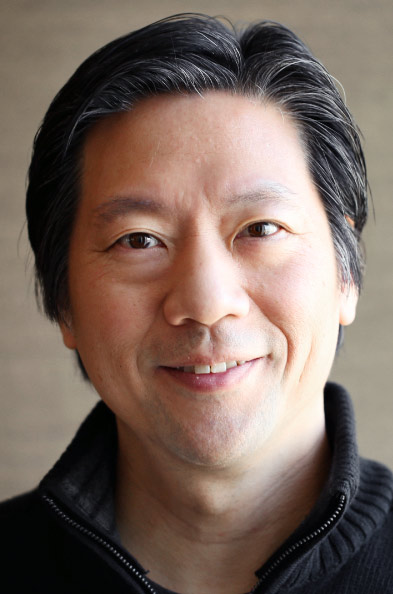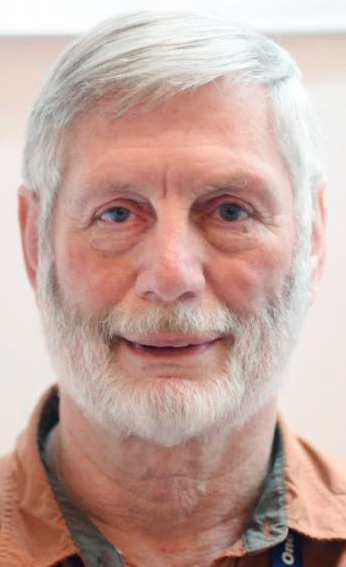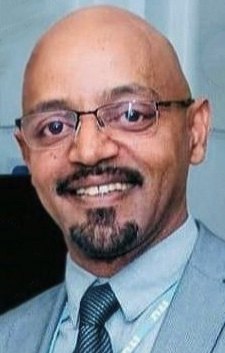

 In my recent CircleID post, DNS, Domain Names, and Certificates: The Missing Links in Most Cybersecurity Risk Postures, I highlighted the importance of applying multiple layers of defense to secure these business-critical assets. Last Friday, Brian Krebs, the world-renowned cybersecurity journalist, reiterated the criticality of domain name security because the domain name "e-hawk.net" was stolen from the rightful owner using social engineering tactics targeting its domain name registrar. more
In my recent CircleID post, DNS, Domain Names, and Certificates: The Missing Links in Most Cybersecurity Risk Postures, I highlighted the importance of applying multiple layers of defense to secure these business-critical assets. Last Friday, Brian Krebs, the world-renowned cybersecurity journalist, reiterated the criticality of domain name security because the domain name "e-hawk.net" was stolen from the rightful owner using social engineering tactics targeting its domain name registrar. more
 In a study of the Internet in China in the late 1990s, my colleagues and I observed that "China has been able to execute plans effectively by allocating resources to competing, government-owned enterprises," and Kai-Fu Lee shows that they have pursued a similar strategy with respect to AI. Now they are doing the same with low-Earth orbit (LEO) broadband satellite constellations. more
In a study of the Internet in China in the late 1990s, my colleagues and I observed that "China has been able to execute plans effectively by allocating resources to competing, government-owned enterprises," and Kai-Fu Lee shows that they have pursued a similar strategy with respect to AI. Now they are doing the same with low-Earth orbit (LEO) broadband satellite constellations. more
 Eight years ago, we made the decision to apply for ".gay" with encouragement from Clyde, my gay brother-in-law, among other passionate members of my family. Although we lost him recently, his memory has only increased our determination to see it through. I know Clyde would be proud of our vision for .gay, and all of the planning and community engagement that has gone into making sure we get this right. more
Eight years ago, we made the decision to apply for ".gay" with encouragement from Clyde, my gay brother-in-law, among other passionate members of my family. Although we lost him recently, his memory has only increased our determination to see it through. I know Clyde would be proud of our vision for .gay, and all of the planning and community engagement that has gone into making sure we get this right. more
 For all of us at Public Interest Registry, working to remove child sexual abuse content from the Internet isn't just a part of our work; it's our moral duty. As stewards of the .ORG community, addressing the problem head on is the only option compatible with our values. Talking about Child Sexual Abuse Materials (CSAM) is challenging and uncomfortable. It's also far too important, and prevalent, of a problem to ignore. While it's impossible to know exact numbers, online CSAM is a major, rapidly growing crisis. more
For all of us at Public Interest Registry, working to remove child sexual abuse content from the Internet isn't just a part of our work; it's our moral duty. As stewards of the .ORG community, addressing the problem head on is the only option compatible with our values. Talking about Child Sexual Abuse Materials (CSAM) is challenging and uncomfortable. It's also far too important, and prevalent, of a problem to ignore. While it's impossible to know exact numbers, online CSAM is a major, rapidly growing crisis. more
 The ICANN Security and Stability Advisory Committee (SSAC) and the Internet Society Deploy360 Programme are planning a DNSSEC and Security Workshop during the ICANN67 meeting held from 07-12 March 2020 in Cancun, Mexico. The original DNSSEC Workshop has been a part of ICANN meetings for many years and has provided a forum for both experienced and new people to meet, present, and discuss current and future DNSSEC deployments. more
The ICANN Security and Stability Advisory Committee (SSAC) and the Internet Society Deploy360 Programme are planning a DNSSEC and Security Workshop during the ICANN67 meeting held from 07-12 March 2020 in Cancun, Mexico. The original DNSSEC Workshop has been a part of ICANN meetings for many years and has provided a forum for both experienced and new people to meet, present, and discuss current and future DNSSEC deployments. more
 Two and a half months ago, shortly after the ICANN66 meetings in Montreal, the ICANN stakeholder community was jolted by the announcement that the Internet Society (ISOC) had entered into an agreement to sell the wholly owned PIR non-profit that holds the .org registry contract. The sale was to be for $1.13B USD to the hastily assembled venture capital company Ethos Capital. The sale was presented as a done deal awaiting approval by the ICANN Board. more
Two and a half months ago, shortly after the ICANN66 meetings in Montreal, the ICANN stakeholder community was jolted by the announcement that the Internet Society (ISOC) had entered into an agreement to sell the wholly owned PIR non-profit that holds the .org registry contract. The sale was to be for $1.13B USD to the hastily assembled venture capital company Ethos Capital. The sale was presented as a done deal awaiting approval by the ICANN Board. more
 There is a lot of public sentiment against placing small cell sites on residential streets. There is a particular fear of broadcasting higher millimeter wave frequencies near to homes since these frequencies have never been in widespread use before. In the public's mind, higher frequencies mean a greater danger of health problems related to exposure to radiofrequency emissions. more
There is a lot of public sentiment against placing small cell sites on residential streets. There is a particular fear of broadcasting higher millimeter wave frequencies near to homes since these frequencies have never been in widespread use before. In the public's mind, higher frequencies mean a greater danger of health problems related to exposure to radiofrequency emissions. more
 ICANN's repeated betrayals of the public interest have created the conditions for Ethos Capital's proposed purchase of .Org. The growing outrage directed at ICANN is raising questions about ICANN's legitimacy and the wisdom of having entrusted ICANN with oversight over the domain name system ("DNS"). ICANN has shown itself to be out of touch with and unresponsive to the public interest. ICANN now has an opportunity to remember its mission... more
ICANN's repeated betrayals of the public interest have created the conditions for Ethos Capital's proposed purchase of .Org. The growing outrage directed at ICANN is raising questions about ICANN's legitimacy and the wisdom of having entrusted ICANN with oversight over the domain name system ("DNS"). ICANN has shown itself to be out of touch with and unresponsive to the public interest. ICANN now has an opportunity to remember its mission... more
 On the 5th of November 2019, the release of the first of ITU's Measuring Digital Development series coincided with Freedom House's unveiling of its Freedom on Net 2019 report. This serendipity prompted me to write this blog note after carefully examining both reports. On one hand, ITU's analytical publication, with its new friendly format, emphasizes that Internet use continues to spread, warning however that the digital gender gap is widening. more
On the 5th of November 2019, the release of the first of ITU's Measuring Digital Development series coincided with Freedom House's unveiling of its Freedom on Net 2019 report. This serendipity prompted me to write this blog note after carefully examining both reports. On one hand, ITU's analytical publication, with its new friendly format, emphasizes that Internet use continues to spread, warning however that the digital gender gap is widening. more
 Tomorrow EFF, NTEN, Fight for the Future, Demand Progress, and other organizations will hold a rally outside of ICANN HQ from 9-11 am. You know about the rally, and you should all attend this event! Whatever your feelings about the sale of .ORG, you are leaders of the GNSO, the body that makes gTLD policy. This is a gTLD event, and registrants are trying to talk with ICANN, and they are trying to talk with YOU. more
Tomorrow EFF, NTEN, Fight for the Future, Demand Progress, and other organizations will hold a rally outside of ICANN HQ from 9-11 am. You know about the rally, and you should all attend this event! Whatever your feelings about the sale of .ORG, you are leaders of the GNSO, the body that makes gTLD policy. This is a gTLD event, and registrants are trying to talk with ICANN, and they are trying to talk with YOU. more
 I have bad news for anybody still clinging to their flip phones. All of the big cellular carriers have announced plans to end 3G cellular service, and each has a different timeline in mind... The amount of usage on 3G networks is still significant. GSMA reported that at the end of 2018 that as many as 17% of US cellular customers still made 3G connections, which accounted for as much as 19% of all cellular connections. more
I have bad news for anybody still clinging to their flip phones. All of the big cellular carriers have announced plans to end 3G cellular service, and each has a different timeline in mind... The amount of usage on 3G networks is still significant. GSMA reported that at the end of 2018 that as many as 17% of US cellular customers still made 3G connections, which accounted for as much as 19% of all cellular connections. more
 As the rollout of fiber to the home project (FttH) remains a slow process, it is no wonder that more and more people are looking towards mobile as a potential alternative. Obviously, mobile communication has improved over recent years in providing excellent access to broadband. It has also become more affordable. At the same time, there is the hype surrounding 5G, and the public relations and media machines of the vendors involved makes you believe that this will become a real competitor to the slow-moving FttH developments. more
As the rollout of fiber to the home project (FttH) remains a slow process, it is no wonder that more and more people are looking towards mobile as a potential alternative. Obviously, mobile communication has improved over recent years in providing excellent access to broadband. It has also become more affordable. At the same time, there is the hype surrounding 5G, and the public relations and media machines of the vendors involved makes you believe that this will become a real competitor to the slow-moving FttH developments. more
 I was glad to join Meghna Chakrabarti on NPR this week for an engaging discussion about Ethos Capital's acquisition of Public Interest Registry (PIR) from the Internet Society, which you can listen to here. I always appreciate an opportunity to answer questions about .ORG, and was pleased to be joined by Andrew Sullivan, President and Chief Executive Officer of the Internet Society, and Esther Dyson, founding chairwoman of ICANN from 1998 to 2000. more
I was glad to join Meghna Chakrabarti on NPR this week for an engaging discussion about Ethos Capital's acquisition of Public Interest Registry (PIR) from the Internet Society, which you can listen to here. I always appreciate an opportunity to answer questions about .ORG, and was pleased to be joined by Andrew Sullivan, President and Chief Executive Officer of the Internet Society, and Esther Dyson, founding chairwoman of ICANN from 1998 to 2000. more
 Private equity firm Ethos Capital's attempt to take control of .org, the Internet domain that's home to most of the world's non-profit and public-benefit organizations, has triggered an interesting crisis in Internet governance. The Internet Corporation for Assigned Names and Numbers, or ICANN, is the body responsible for regulating the global domain name industry. For the first time since oversight responsibility over ICANN was passed from the United States National Telecommunications and Information Administration... more
Private equity firm Ethos Capital's attempt to take control of .org, the Internet domain that's home to most of the world's non-profit and public-benefit organizations, has triggered an interesting crisis in Internet governance. The Internet Corporation for Assigned Names and Numbers, or ICANN, is the body responsible for regulating the global domain name industry. For the first time since oversight responsibility over ICANN was passed from the United States National Telecommunications and Information Administration... more
 For the first time in my memory, broadband has entered into U.S. presidential politics. This is an important milestone for rural broadband – not because of the proposals being made by candidates, but because it indicates that the voices of those without rural broadband have reached upward to the top of the political system. I'm sure that when the presidential candidates go to rural areas, they are asked if they can help find a solution for the lack of broadband in many rural counties. more
For the first time in my memory, broadband has entered into U.S. presidential politics. This is an important milestone for rural broadband – not because of the proposals being made by candidates, but because it indicates that the voices of those without rural broadband have reached upward to the top of the political system. I'm sure that when the presidential candidates go to rural areas, they are asked if they can help find a solution for the lack of broadband in many rural counties. more
Sponsored byVerisign

Sponsored byVerisign

Sponsored byWhoisXML API

Sponsored byDNIB.com

Sponsored byRadix

Sponsored byCSC

Sponsored byIPv4.Global
